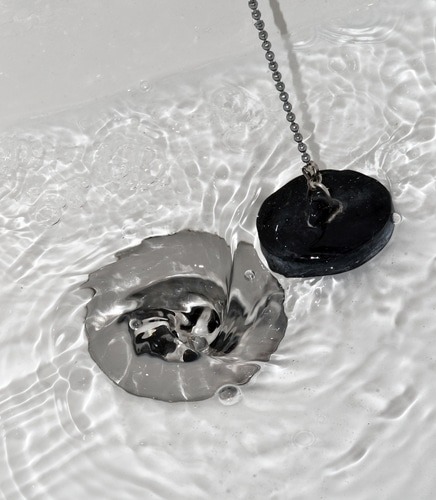21 Aug. 18
How Often Should I Clean My Drains?
 Plumbing problems happen to almost every homeowner at some point. While drips and leaks are common, clogged drains are even more common and incredibly irritating as they make it hard to do dishes or take a shower. Plus, clogged drains can be downright disgusting with bad odors and possibly even overflowing sewage. Here is a smart maintenance schedule to keep drains flowing quickly and smoothly.
Plumbing problems happen to almost every homeowner at some point. While drips and leaks are common, clogged drains are even more common and incredibly irritating as they make it hard to do dishes or take a shower. Plus, clogged drains can be downright disgusting with bad odors and possibly even overflowing sewage. Here is a smart maintenance schedule to keep drains flowing quickly and smoothly.
Maintain Kitchen Drains Weekly
Some drain maintenance can start at home with DIY tasks that any homeowner can do. By maintaining drains regularly, more costly and intensive plumbing maintenance tasks can be put off or avoided altogether. The kitchen drain can get clogged with food waste and grease. While being careful of what one puts down the drain and scraping dishes into the trashcan rather than washing food waste down the drain are important, a few simple tasks can help. Pouring a pot of very hot pot of water down the drain weekly can melt away grease.
Clean Bathroom Drains Monthly
Bathroom drains may not get the grease that kitchen drains see, but sinks and showers can get clogged with hair, and toilets can certainly get clogged quickly as well. Hair can be caught with a special drain cover or can be pulled out monthly with the end of a wire hanger. However, larger clogs that do not respond to these simple methods or to a plunger will require professional cleaning.
Know When to Call for Professional Cleaning
Instead of turning to harsh chemicals that can be dangerous on pipes and on air quality, homeowners can choose professional plumbers to clear up clogs quickly and completely. Here are some clues that a homeowner needs to call a plumber.
-When Water Drains Slowly
You can know that your drains need to be cleaned when they are draining slower than usual. This happens most frequently in the bathroom sink or shower although it can happen when a dishwasher does not empty entirely at the end of a cycle. This can indicate a partial obstruction in a pipe.
-When Water Does Not Drain at All
When water does not drain at all through a sink or when a toilet will not flow at all but merely overflows, this indicates a complete obstruction of the pipe that requires immediate cleaning. In a double sink, water may back up into the other side of the sink if the pipe is clogged.
-When Drains Smell
The smell of sewage means that there is something festering or rotting in the drain. This often happens in basement drains and indicates the need for immediate cleaning.
-When Drains Make Unusual Noises
Although less usual, the sound of gurgling or bubbling in a drain indicates that water is having difficulty getting down the drain.
Drains should be cleaned regularly to maintain their quick, smooth flow. They may also need occasional professional maintenance should they become clogged. Regular drain cleaning can prevent more costly problems in the future as well as plenty of headaches and irritation.
